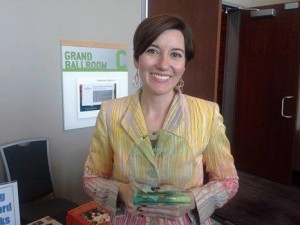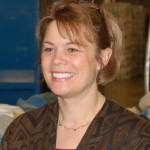[This post originally appeared at Worlds Without End and is reposted here with permission.]
At the end of Roger Scruton’s controversial documentary Why Beauty Matters, the British philosopher arranges a performance of Pergolesi’s Stabat Mater in the St. Pancras railway station. The 13th-century hymn depicts the grieving Mary at the crucifixion of Jesus: “Stabat mater dolorosa juxta Crucem lacrimosa, dum pendebat Filius/At the Cross her station keeping, stood the mournful Mother weeping, close to her Son to the last.” Pergolesi himself was suffering from tuberculosis when he composed his rendition in 1736 and passed away soon afterwards. Prior to the St. Pancras performance, there is a segment in which Scruton and the singers discuss the impact of the piece:
James Bowman (Tenor): “Even a completely unmusical person would get the message that it is a piece of grieving, wouldn’t they? There could be no possible doubt about that.”
Scruton: “The music takes over the words and makes them speak to you in another language in your own heart.”
Catherine Bott (Soprano): “It means that today in our secular world it can delight and move without people having to know what it’s about.”
Scruton: “We learn without the theological apparatus that there is thing called suffering and that it is at the destiny of all of us, but also is not the end of all of us.”
As the documentary ends, the camera focuses on the various faces of those who have stopped to listen in the station while Scruton’s voice-over summarizes the film’s message. Based on what is seen onscreen, several people stopped and were visibly touched. But the majority moved along.
This reminded me of the now-famous experiment put on by The Washington Post in which world-class violinist Joshua Bell played incognito in a Washington D.C. Metro station. In the 45 minutes that Bell played, only 7 out of 1,097 people stopped. One woman recognized him, having seen him play at the Library of Congress three weeks earlier. Her $20 tip was excluded from the final count (due to it being “tainted by recognition”), which ended up totaling $32.17. As the WP said, “Yes, some people gave pennies.” While the beautiful can sometimes reach us among the noise, it can often be difficult. Psychologist Paul Bloom sees the WP experiment as “a dramatic illustration of how context matters when people appreciate a performance. Music is one thing in a concert hall with Joshua Bell, quite another in a subway station from a scruffy dude in a baseball cap.”[1] It was the latter example of Joshua Bell that Neylan McBaine used to open up her November presentation at the Miller Eccles Study Group here in Texas. She stressed that sometimes the beauty of the Gospel is often lost in the midst of its presentation, whether that be leadership rhetoric, Church structure, or cultural experience. This is perhaps especially true among women in the Church. The different reactions to Bell’s subway performance are similar to the very different reactions from LDS women:
Neylan McBaine
Our doctrine around the eternal nature of gender and the importance of mothers is, in many women’s eyes, a unique theological gift resulting in worth, self-confidence, and self-definition. Many women find purpose in these doctrines and the roles they prescribe. The teaching that they are daughters of God, who loves them without their having to earn that love, results in a strong sense of personal worth. Many of these women happily leave to men the ecclesiastical structure of priesthood authority and the accompanying leadership roles; they also assume separate, less public, responsibilities themselves. Many mothers feel supported in their potentially isolating and thankless jobs, and in many homes there is a division of labor that works for both parties. Especially in developing countries, the gospel’s empowerment of women has resulted in positive seismic shifts in the way women are respected, families are run, and men rise up to their responsibilities…But not all of our women find themselves so aligned with these attitudes. For a range of reasons…women in the Church today can feel a tension between what they are being taught at church or how they’re being engaged at church, and what they feel is a true evaluation of their potential and worth. It is not uncommon for a member in the Church today–at least in the United States or developed countries–to know someone who is wrestling what it means to be a Mormon woman.[2]
What I found so thrilling about Neylan’s book, presentation, and the conversation afterwards is that she is looking for ways to make actual, long-lasting changes in Mormon culture–the context of the Gospel music–regarding women by examining the current processes and constraints within the Church. When it comes to institutions and movements, too often we judge them based on their intended goals and/or their sincerity. Rarely do we look at their actual mechanics and results. “”Profit-making” businesses, “public interest” law firms, and “drug prevention” programs,” writes one economist, “are just some of the many things commonly defined by their hoped-for results, rather than by the characteristics of the decision-making processes involved and the incentives created by those processes. So-called “profit-making” businesses, for example, often fail to make a profit and most of them become extinct within a decade after being founded.”[3] Movements and organizations “look very different when viewed in terms of their respective goals than they do when viewed in terms of their incentives and constraints.”[4] Even though business is often at the receiving end of Mormon intellectuals’ criticisms (especially Nibley), I believe it is Neylan’s business and marketing experience that has been influential in her tendency to analyze gender issues within the Church through the paradigm of incentives and constraints. Business managers, wrote the late Peter Drucker, “have to focus [their] knowledge on effectiveness and results.”[5] By looking at everyday church processes and bottom-up solutions, Neylan is uncovering ways of addressing current problems that might be more effective than mere top-down decrees (as important as those may be). By doing so, Neylan is able to make suggestions that can impact the lived everyday experience of the average LDS woman now. I think it also allows her to recognize that some of the supposedly obvious solutions to gender issues in the Church may not be so obvious. For example, her December 2014 WeForShe speech states,
Men and women today – in developing countries and even here in the United States – expect different levels of influence from themselves and from each other. Even when numerical representation is righted – in the media, in deliberative bodies, in governments and industry – we are stilled saddled with the unequal levels of authority that are expected and generated by men and women. In his new book, The Silent Sex, BYU political science professor Christopher Karpowitz and his coauthor Tali Mendelberg define “authority” as “the expectation of influence” and they prove through their studies that women claim and express less authority than men. In addition, “the types of considerations women tend to articulate, and how they articulate them, are valued less because they reflect ways of thinking and self-expression that have been socially constructed as less authoritative.” (page 26) Women’s devalued communication styles mean that even if we were to solve numerical representation in the governing bodies of our governments and institutions, we would still grapple with the lack of authority women perceive in themselves and men perceive in them.
Neylan excitedly shared Karpowitz’s findings with me after her presentation, seeing them as a validation of her overall approach to the subject. A position of authority does not automatically mean one is seen as authoritative or respected as such. Even beyond expressed authority, women often help more within organizations–the “office housework”–yet are less recognized for it. “When a man offers to help,” write Sheryl Sandberg and Adam Grant,
we shower him with praise and rewards. But when a woman helps, we feel less indebted. She’s communal, right? She wants to be a team player. The reverse is also true. When a woman declines to help a colleague, people like her less and her career suffers. But when a man says no, he faces no backlash. A man who doesn’t help is “busy”; a woman is “selfish.” …When men do help, they are more likely to do so in public, while women help more behind the scenes. Studies demonstrate that men are more likely to contribute with visible behaviors — like showing up at optional meetings — while women engage more privately in time-consuming activities like assisting others and mentoring colleagues.
The above evidence demonstrates that blanket authority isn’t the end-all be-all to solving Mormon gender issues. While ordination may help in shaping culture, it ultimately boils down to valuing the experience and views of women (and not just those deemed within the confines of a rigid, inflexible gender role). This is what makes Neylan’s contribution so important and (arguably) appealing to both sides of the female ordination question. Her focus on the regular processes in local wards and stakes can be applied whether female ordination happens or not.
It is easy to become engrossed with abstract causes and sweeping, overly simplistic “solutions” (I don’t really believe in solutions, only trade-offs). Plenty of people do it, from politicians to CEOs, Church leaders to activists. Stanford’s Robert Sutton and Huggy Rao have said that it is a
rare ability…to make sure that the short-term stuff gets done and done well, while simultaneously never losing sight of the big picture. This is a tricky balance for us human beings. Research by New York University’s Yaacov Trope and his colleagues shows that thinking about distant events is good because we focus on long-term goals–and it is bad because we manufacture unrealistic fantasies. We don’t think enough about the steps required to achieve those ends, and when we do we underestimate how much time and effort they will take.[6]
Neylan appears to be aware of the time and effort and has made practical suggestions accordingly. Though she is sometimes viewed with skepticism and lambasted as being too moderate, too naive, or even in cahoots with The Patriarchy© (a term she seems to avoid, I’ve noticed), Neylan’s approach strikes me as one of the most useful in creating a culture of equality. Her suggestions, if implemented at the individual and local levels, could help Mormon culture bloom into its full potential. They could, in essence, help put the music back into the concert hall where everyone can recognize its beauty.
And that’s something we can all get behind.
NOTES
1. Paul Bloom, How Pleasure Works: The New Science of Why We Like What We Like (New York: W.W. Norton & Co., 2010), 118.
2. Neylan McBaine, Women at Church: Magnifying LDS Women’s Local Impact (Salt Lake City: Greg Kofford Books, 2014), xvii-xviii.
3. Thomas Sowell, Knowledge and Decisions (New York: Basic Books, 1996), ix-x.
4. Ibid., xi.
5. Peter Drucker, The Essential Drucker (New York: HarperCollins, 2001), 13.
6. Robert I. Sutton, Huggy Rao, Scaling Up Excellence: Getting to More Without Settling for Less (New York: Crown Business, 2014), 17 (Kindle).



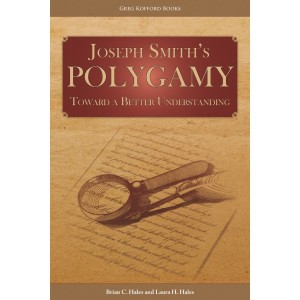
 Carolina Allen is a Brazilian native and US immigrant. She is a 2nd generation member of the church. A Philosophy major from U of U. She is now happily married to Dr. Kawika Allen, a professor of counseling psychology at BYU.
Carolina Allen is a Brazilian native and US immigrant. She is a 2nd generation member of the church. A Philosophy major from U of U. She is now happily married to Dr. Kawika Allen, a professor of counseling psychology at BYU.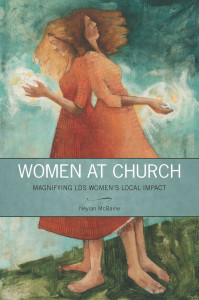
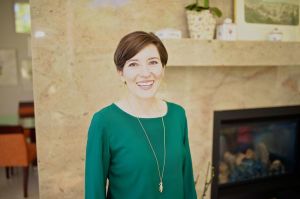
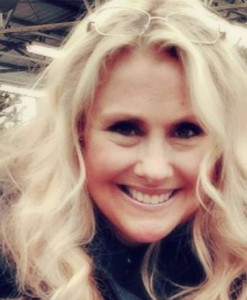
 niversity with a degree in Journalism with an emphasis in public relations and corporate communications. After graduating she interned for the Church Public Affairs Office and also worked for the Church’s Office of International and Governmental affairs in Washington D.C.
niversity with a degree in Journalism with an emphasis in public relations and corporate communications. After graduating she interned for the Church Public Affairs Office and also worked for the Church’s Office of International and Governmental affairs in Washington D.C.